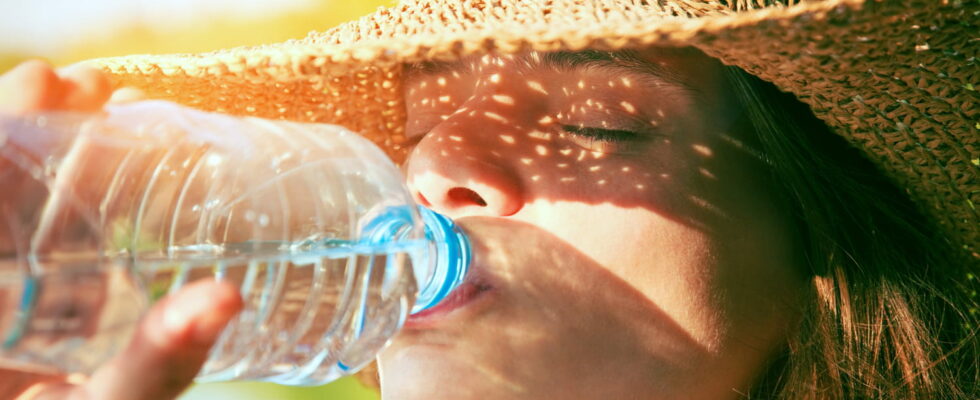Hydrate, but not just anyhow.
The high temperatures of the last few days force us to hydrate ourselves a lot to help our bodies cope. Since the body of an adult is made up of 65% water, to stay healthy, we must renew it and drink between 1.5 liters and 2 liters of water per day. However, according to a recent Austrian study, we don’t need just any water, or we risk seeing our blood pressure increase.
Scientists from the Danube University in Austria recruited 8 healthy subjects, 5 women and 3 men. For four weeks, the participants were asked to avoid drinking bottled beverages, whether plastic or glass, and to replace their main fluid intake with tap water. Their blood pressure was measured at the beginning of the experiment, then after 14 days and a final time after 30 days of the experiment. Finally, the data collected was analyzed as a group, but also separately for men and women.
The results published in the journal Microplastics indicate that in both men and women, a decrease in diastolic blood pressure (relaxation of the heart) was observed after the plastic-free diet. In women, this result is more evident, with a significant decrease in both systolic (contraction of the heart) and diastolic blood pressure after the plastic-bottle-free diet. The study therefore suggests that drinking water from a plastic bottle could potentially increase blood pressure.
The presence of phthalates (chemicals used to make plastic more flexible) can indeed be released in plastic water bottles. These substances can then end up in the water and pass into the bloodstream once drunk. In the body, phthalates can interact with blood vessels and blood cells, causing reactions that can increase blood pressure. Further exploration is planned to better understand the impact of microplastics on cardiovascular health.
According to scientists, it seems that tap water doesn’t contain the same microplastics as bottled water, so it may be better for cardiovascular health. Keep that in mind the next time you hydrate.
